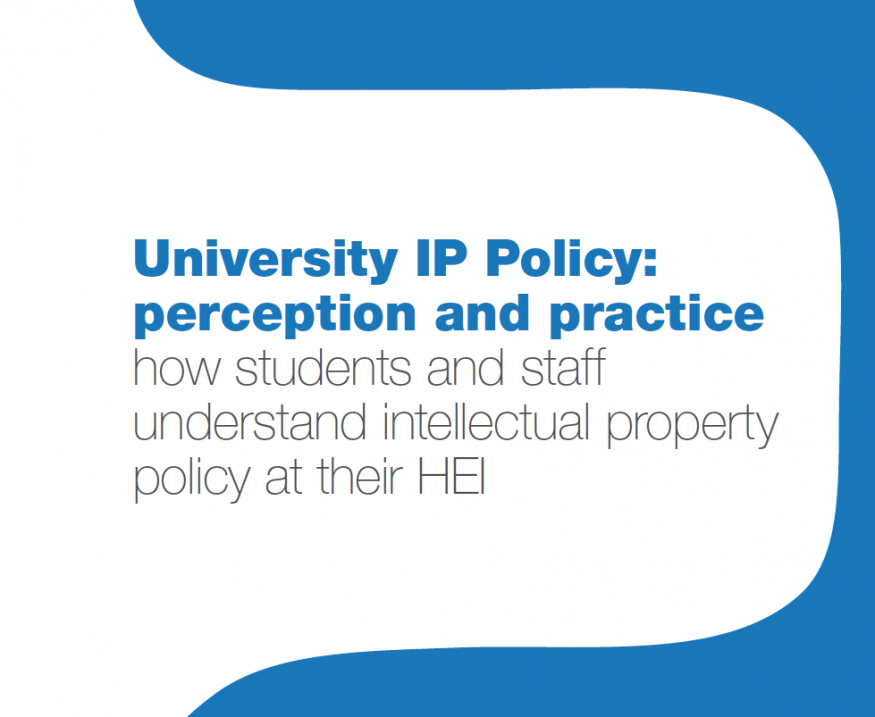Students demand better understanding about intellectual property (IP) and how it impacts them, as evidenced in a new IPAN research report: “University IP policy – perception and practice.”
The research, commissioned by IPAN and carried out by the National Union of Students Insight research group, surveyed the views about IP, its teaching and policy impact, of 2800 students and 250 teaching staff across 150 UK Universities and Higher Education Institutions (HEIs).
“It was only while completing this questionnaire that I realised how important intellectual property is and will be to my future career” - a typical student response to the online questionnaire about perception and practice of IP policy on campus.
The research report (available at www.ipaware.net) was launched at a meeting at the Chartered Institute of Patent Attorneys in London on 27th July, attended by an audience including invited guests from the world of IP higher education as well as IPAN members.
Introducing the launch, Sir Rod Aldridge of the Aldridge Foundation shared his enthusiasm for ensuring future entrepreneurs learn about IP. Having had his eyes opened to the commercial risks and benefits IP presents in a business context, he now plans to run IP audits at all of the Foundations entrepreneurial academies.
The report, prepared by Prof. Ruth Soetendorp, Mandy Haberman and Steve Smith of the IPAN Education Group, was based on analysis and research findings generated by the independent NUS Insight group. The research confirms anecdotal opinions that knowledge about IP continues to be poor across the HEI sector and is frequently limited to copyright and plagiarism.
Understanding and operation of IP policy is inconsistent across institutions. Staff assume they understand what IP is, and how IP policies operate for their students, but the extent of understanding is uncertain.
76% of staff are in favour of teaching IP but
32% apparently don’t know whether it’s taught or not
Students have a strong desire to understand more about IP and its implications for them and their future careers. They expect university teaching staff to be able to advise them about IP but staff are reluctant and feel ill-prepared to do so. Students expect more to be done by their university to protect their interests in work that goes on public display at end of year degree shows. International students entering a UK HEI are more likely to have heard about IP than UK educated colleagues.
The report makes recommendations to higher education policy makers and those concerned with future enterprise capacity of UK plc.
IPAN believes that all young people should leave UK Higher Education with sufficient understanding of IP to properly equip them for life.
For further information contact:
Ruth Soetendorp, Chair IPAN Education Group iprsoet@gmail.com
Go to full research report: www.ipaware.net
Information for Editors:
About IPAN – the Intellectual Property Awareness Network:
The IP Awareness Network – IPAN – formed in 1993 by a cross-section of organisations concerned to improve awareness and understanding of IP, is now established as an independent charitable, “not-for-profit” company, limited by guarantee, with around 40 members. IPAN does not lobby for any particular member or sector viewpoint; its main goal is to help improve education about IP, enabling the knowledge market to function. To do this, it divides its work between three interest groups: Parliamentarians, Finance & Economics and Education. The Parliamentary group organises an annual event in Parliament for World IP Day.
About the Aldridge Foundation:
Established by Sir Rod Aldridge, the Aldridge Foundation sponsors seven entrepreneurial academy schools, a Studio School and two University Technical Colleges, with another school in development.

